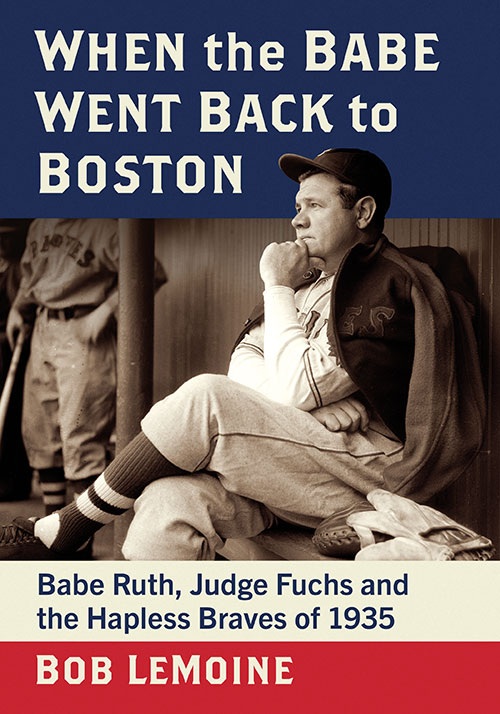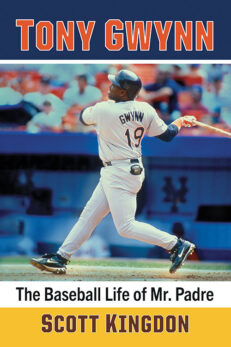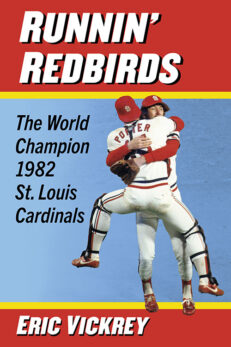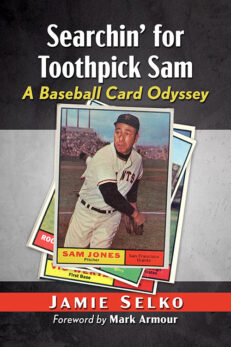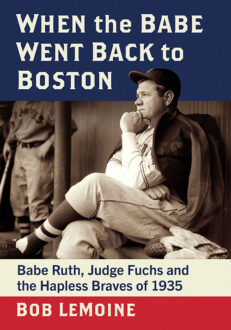When the Babe Went Back to Boston
Babe Ruth, Judge Fuchs and the Hapless Braves of 1935
$39.95
In stock
About the Book
Babe Ruth was 40 and flabby in 1935. His days as a strapping, fearsome home run hitter were behind him. Baseball had flourished into big business through Ruth’s swing and swag and didn’t need him anymore. His dream was to become a manager but the New York Yankees—a dynasty he helped build—were not interested. But someone wanted him. Judge Emil Fuchs, luckless president of the Boston Braves, had lost a fortune on his perpetually losing team. Desperate to save the club from collapse, he needed Babe Ruth—not the fading slugger but the most famous brand on the planet. This book chronicles the Ruth and Fuchs partnership during a perplexing 1935 season with the 38-115 Braves—truly one of the worst baseball teams in history—along with Ruth’s final games, back in the city where he debuted.
About the Author(s)
Bibliographic Details
Bob LeMoine
Format: softcover (7 x 10)
Pages: 293
Bibliographic Info: 42 photos, notes, bibliography, index.
Copyright Date: 2023
pISBN: 978-1-4766-8502-1
eISBN: 978-1-4766-4830-9
Imprint: McFarland
Table of Contents
Preface: Why Another Babe Ruth Book? 1
Introduction 5
1. Babe Ruth: Hail & Farewell at Fenway (August 12, 1934) 7
2. Judge Fuchs: All Good Wishes at Braves Field (1923–1934) 21
3. Fuchs Barking Up the Wrong Tree (November–December 1934) 38
4. A Homeless Team and Wandering Souls (January–February 1935) 48
5. Boston Invites the Babe to Dinner (February 1935) 59
6. The Babe Goes to Spring Training (March 1935) 77
7. The Bambino Is Back in Boston (April 1935) 91
8. Babe Ruth’s Last Hurrah (May 1935) 111
9. We All Strike Out Sometime (June 1935) 131
10. The Judge’s Swan Song (July 1935) 152
11. Doesn’t Anybody Want to Buy This Team? (August–September 1935) 172
12. A Forfeited Franchise (October–December 1935) 201
13. Long Live the Boston Braves 211
14. Living for the Kids 220
15. The Trail’s End of Glory 231
Chapter Notes 243
Bibliography 275
Index 279
Book Reviews & Awards
• “By virtue of his extensive research, Bob LeMoine shows that Babe Ruth’s return to Boston with the Braves in 1935, as with the Bambino’s 1919 departure from the Red Sox, arguably ‘cursed’ both of the Hub’s major league franchises. As well documented by the author, the past-his- prime ailing slugger was lured back by the machinations of Tribe owner Fuchs to bolster gate receipts in a desperate attempt to save his financially moribund regime. The scheme quickly failed as Ruth abruptly retired, ultimately forcing Fuchs to surrender the team to creditors while Boston’s National League fans suffered through one of the worst home team performances in big league history. LeMoine adeptly details the key on- and off-the-field events of that fateful season and of the legacies of Ruth and Fuchs.”—Bob Brady, President of the Boston Braves Historical Association
• “This book took me by surprise. Bob LeMoine’s book on the denouement of one of baseball’s (and America’s) pre-eminent legends evoked emotions of both sympathy and pathos. He tells the story of Babe Ruth’s final years in a way I felt previous books had not plumbed nearly as well. His account felt revelatory, and full of detail. In the process of exploring The Babe’s final years, LeMoine tells the story of an era of Boston baseball history—the Braves, as they struggled through the Depression years—that also felt new to me, particularly in following the efforts of Judge Emil Fuchs to try and save a team for which he cared so deeply.”—Bill Nowlin, baseball historian and author of more than 50 Boston baseball books, including Tom Yawkey: Patriarch of the Boston Red Sox, Mr. Red Sox: The Johnny Pesky Story, Fenway Park at 100, and Ted Williams: The Pursuit of Perfection
• “When the Babe Went Back to Boston is one of the best books of 2023. It is a thoroughly researched and thoughtfully told account of the unhappy home stretch of Ruth’s career. This is the baseball history equivalent of ‘The Lion in Winter.’”—Clayton Trutor, author of Loserville: How Professional Sports Remade Atlanta—and How Atlanta Remade Professional Sports and Boston Ball: Jim Calhoun, Rick Pitino, Gary Williams, and the Forgotten Cradle of Basketball Coaches

